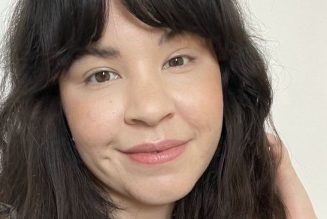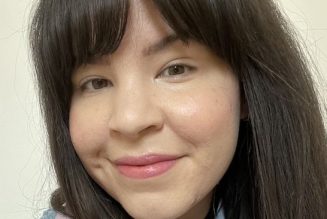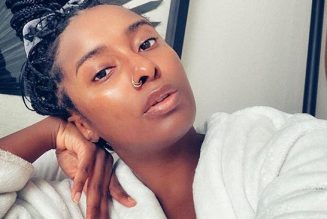
Brown thinks it’s high-time that we started talking about menopause earlier too. “I think there’s a real drive within the menopause community to ensure that we’re talking to women in their early and mid-30s and that they get it, and that they understand that their hormones are actually a superpower. They’re brilliant and if you can harness them well then your menopause should actually be a positive experience,” says Brown. “At the moment, younger women don’t really want to hear about it, they’re frightened of it because it sounds horrid. But it doesn’t to be if we can reframe this mid-life stage. We know statistically that post-menopause, if you’ve been looked after properly, then you have this creative surge and you’re more likely to start a business, find your sense of purpose and your value to a commercial workplace can grow exponentially.”
While Brown was pretty statistically accurate at entering peri-menopause at the age of 43, she does point out that a lot of women do enter it earlier. “And, really, from about the age of 35, our hormones start changing,” Brown explains. “You’ll notices things shifting, whether that’s your hair thickness, bloating or your skin texture, all of these things are signs that your hormones are starting to do different things.”
And when it comes to the skin, in particular, there’s no more effective place to start than with your products. “When it comes to changes to the skin the best place to start is to look at the products you currently have,” advises Dr. Ifeoma Ejikeme, MD, MBChB, MSc, skin expert and medical director and founder of Adonia Medical Clinic. “Ask yourself if these products still suit the needs of your skin. I find people can often use the same products for decades, but as your skin changes, then so should your products.”











